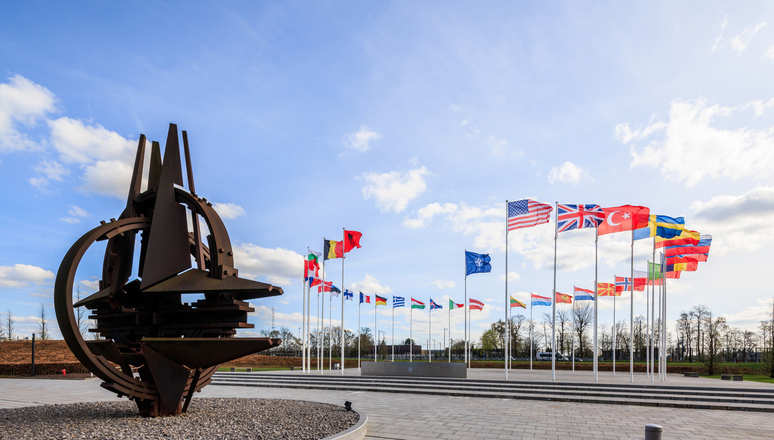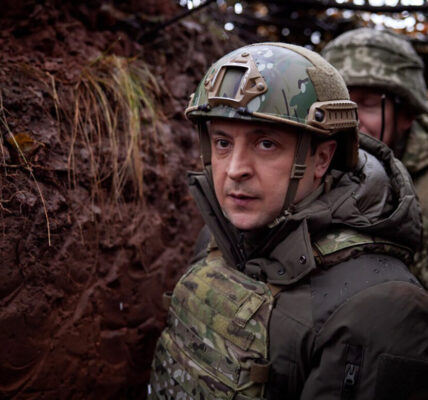
A NATO-style form of collective defence is the best protection against cyber security attacks by hostile states and organised crime gangs, experts have warned.
Governments and corporations of all sizes risk losing hundreds of millions of dollars in cyber attacks by hackers weaponising artificial intelligence (AI) to penetrate even the most secure computer systems.
Cyber security experts are now urging governments and corporations to work together creating a form of collective self-defence where information on hacks are shared to help protect against future attacks.
China, Russia, Iran and North Korea have all been accused of mounting complex cyberattacks against the United States and other Western nations in recent years.
Billions of pieces of data have been stolen from corporations, governments, health care providers and even from schools, according to Western intelligence agencies.
The stolen material can then be traded on the dark web or used to carry out further attacks, months or even years further down the line, according to cyber security specialists.
The recent US attack on Snowflake, the cloud-based data warehouse, resulted in at least 100 customers confirming that they have been impacted by the attacks, and approximately 165 businesses were potentially exposed.
Another cyber breach on a contractor employed by the British Ministry of Defence resulted in the personal details of 270,000 members of the armed forces being stolen with China emerging as the main suspect.
The British government said that Shared Services Connected Ltd (SSCL), an arm of the French tech company Sopra Steria, had been breached by a malign actor and “state involvement” could not be ruled out.
China has not been openly named by the government as the culprit. The MoD was told of the hack in early May but a number of sources said SSCL became aware of the breach in February.
Blake Cahen, the director of cyber security at IronNet said that attacks by so-called “info-stealers” will only get more sophisticated with the technological advances being offered by AI.
Mr Cahen added that there are probably many companies which have already been hacked by non-state actors and hostile states but are completely unaware.
He said that the best deterrent against the proliferation of hackers, which include lone wolf attacks by individuals operating from a bedroom in their parent’s home to full-blown breaches launched by China, Russia, North Korea and Iran, was what he called collective defence.
In an interview with National Security News, Mr Cahen said: “Collective defence – like Nato – is the concept of sharing data so that a compromise or a threat against one member of the collective is not isolated.
You look at any kind of breach today, and ask how long is it before those details are commercially known?
If it’s a company that is publicly traded or maybe a healthcare customer or financial institution, they have certain requirements that may prevent them from disclosing the attack for weeks to months. So being a part of this collective defence community enables you to take that compromised data and share them instantaneously across all the members. It’s a social network of cyber security. Our system enables all these independent customers, community members, to share this threat data.”
IronNet has 75 customers globally in its collect defence network across a variety of industries that share data every time they are attacked.
The shared data is used by other members of the network to prevent any similar attacks.

Crucial to the success of the network is that the data is anonymised for reputational protection.
He added: “We have somewhere in the realm of 75 community members all sharing data in that automated and anonymous fashion. People are very concerned about sharing their data especially when you talk about government versus private versus public sector. So our platform is uniquely designed to anonymise that data, to only distribute the threat information.”
Despite the threats posed by hackers, Mr Cahen said that members of the public and even senior figures within government and powerful corporations were still falling for basic scams such as “phishing or spear-phishing”.
He said that hackers will try and pass themselves off as members of a target’s family, a boss or work colleague.
He added: “If you don’t look past the surface, the email looks like it’s coming from your mom, your brother, your CEO. And they’re saying, I need you to do X. And the second you reply to that, you’re already the victim and you’re the fish on the hook.”
He said from that moment, the hacker has control and it could very easily be a case of paying a ransom or hackers could either delete or release all of a company’s data or sell it onto a third party.
Mr Cahen also added that in times of financial uncertainty some companies attempt to save money by consolidating their cybersecurity protocols.
He added: “That’s also creating an environment where the attackers have less obstacles that they have to overcome. If you’re putting all your eggs in one basket, all the attackers have to do is bypass one, maybe two things, and then they have full control.”























































































































































































































































































